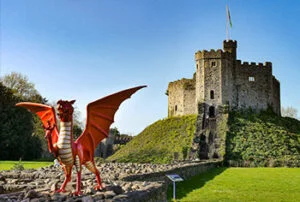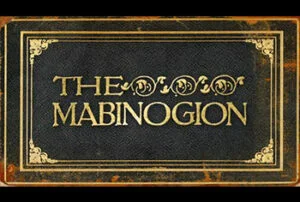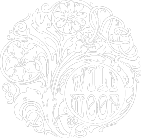Welsh Language and Traditions: Welsh Witch Explains
Part of the Welsh Witch’s philosophy – and the core ethos behind the Wild Moon Distillery – is about honouring Wales (also known as Cymru), its history and its folklore. Welsh language itself has been in decline for the last several centuries due to varying reasons we will explore, with many Welsh people no longer using or even learning it at all. Cymraeg (the word for Welsh), developed from ancient Brythonic, a branch of Celtic language which included old Welsh, Cornish and Breton. While the language itself is very beautiful, even many Welsh natives describe its difficulties when learning.
A lot of the decline in the usage of the language is down to English oppression, which has been occurring for centuries against the Welsh – much of the ancient language has long since ceased to be spoken, with many old tales and folklore dying out as generations pass away. One of the reasons Jade, the Welsh Witch, is so determined to spread the message of traditions-gone-by and reigniting the pride and love of Wales is to prevent these stories from disappearing completely. Let’s dive a little bit deeper into the Welsh language and how it is used now.
Welsh language and its origins
Wales is well-known for its fierce independence and differences to the rest of Britain – Welsh folks are very proud of their roots and honour Welsh integrity through and through. The country itself used to be a lot bigger and united many different regions, using a distinct Celtic language (Brythonic) throughout the lands, until Wales itself became smaller and more confined to the borders of Wales we know today. During the 1800s, the Welsh language was banned, and Welsh schoolchildren were punished if they were caught speaking Welsh. Offenders would be forced to wear the ‘Welsh Not’ – a plaque of wood with the letters ‘W.N’ inscribed and worn around the neck of the punished, which told the wearers fellow classmates of their error. Some evidence suggests that this tradition didn’t fully die out until the 1940s and was a way of trying to eradicate the Welsh language completely.
Naturally, because of the strict punishment of speaking the Welsh language, it became drummed out of Welsh people to speak it. It thus became a dying language. Some good news, however, is that the Welsh language – for the first time in centuries – is actually rising in usage and many are taking it upon themselves to learn after a history of oppression. With this fierce determination to revive it, the Welsh language became a core curriculum subject in Welsh schools once again in the 90s. You can now even learn Welsh on accessible language apps such as Duolingo – why not give it a try yourself?
Due to the rise in people learning Welsh once again, there has been a resurgence in popularity of some ancient texts which are ringing true once more in society. Tales of magic and folklore bring old tales to today, and have been translated into modern languages.
Mabinogion
 Written in old Welsh (known also as Middle Welsh), Mabinogion tales embody the spirit of Wales and are the earliest Welsh prose stories. Even today, Mabinogion are referenced in Welsh tradition and are where a lot of myths and legends originated; these medieval transcripts often mention magic and folklore and inspire a lot of the Welsh Witch’s philosophy today. These Middle Welsh stories are believed to be dated between the eleventh and fourteenth centuries; many of them translated by specialists into modern day Welsh and English respectively. Consisting of eleven texts, the Mabinogion often focus on folklore, medieval heroes and magical encounters based on oral traditions from history. Many of the stories contain King Arther, and explore heroism, romance and ancient battles. The texts are widely regarded as influential within European literature and went on to inspire many famous authors, such as Tolkien. You can buy copies today of the translated stories, and are an important part of Welsh history.
Written in old Welsh (known also as Middle Welsh), Mabinogion tales embody the spirit of Wales and are the earliest Welsh prose stories. Even today, Mabinogion are referenced in Welsh tradition and are where a lot of myths and legends originated; these medieval transcripts often mention magic and folklore and inspire a lot of the Welsh Witch’s philosophy today. These Middle Welsh stories are believed to be dated between the eleventh and fourteenth centuries; many of them translated by specialists into modern day Welsh and English respectively. Consisting of eleven texts, the Mabinogion often focus on folklore, medieval heroes and magical encounters based on oral traditions from history. Many of the stories contain King Arther, and explore heroism, romance and ancient battles. The texts are widely regarded as influential within European literature and went on to inspire many famous authors, such as Tolkien. You can buy copies today of the translated stories, and are an important part of Welsh history.
Eisteddfod
The Eisteddfod ceremonies date back to 1176. These ceremonies are a celebration of Welsh culture, with particular specialities in poetry and music. Even today, these celebrations are a large part of Welsh heritage and tradition, with thousands attending the rituals each year. In Welsh, the word ‘eisteddfod’ itself, translates literally as ‘sitting-together’, with participants coming together to do just that. With strong ties to Druidry, these events are hosted by the Gorsedd, who have contributed to Welsh cultures: they lead the ceremonies following traditions which take inspiration from ancient druids and the Celtic heritage and customs. Events take place over the course of a whole week and is anticipated to bring in around 180,000 visitors each year.
The celebrations attract Welsh people from across the nation and is a well-anticipated event. Ceremonies take place in differing locations around Wales each year, with some recent hosts being Boduan in the county of Caernarfonshire. The Eisteddfod of 2024 is being held in Pontypridd. Fret not, if you are on the other side of the world, there is an annual ceremony held in Trelew, Argentina, for an equally festive ceremony, with visitors flocking from around the globe to celebrate Welsh culture and heritage. This location in Patagonia received many Welsh settlers in the 1800s, and Welsh culture has been celebrated there ever since.
Reclaiming Welsh heritage
In 2023, famous national heritage site the Brecon Beacons changed its name back to original Welsh spelling ‘Bannau Brycheiniog’ which was both an effort in promoting environmentalism issues as well as reclaiming back Welsh language traditions. Snowdonia National Park has had a similar change, with embracing the name ‘Eryri National Park’. These changes have caused quite the stir and many Welsh natives have mixed opinions on the names. However, it cannot be denied that this celebration of the Welsh language has come at an excellent time for Wales, as more and more Welsh businesses strive for cultural pride and honouring the heritage. Jade believes strongly in flying the flag for both local, and national.
Welsh Witch Craft Spirits is a celebration of Welsh – the language, traditions and landscapes of the country. We aim to preserve and protect the oral traditions, as well as reigniting the folklore tales and bringing awareness to the conservation efforts needed to keep the culture alive. It is important now, more than ever, to celebrate our language and our heritage and enjoy all our differences as well.
Our philosophy here is about living authentically and showing up as your true self. That means looking into your roots and wherever you are proud to call home. Would you ever consider learning Welsh? Let us know at @welshwitch_craftspirits if you do and tell us your favourite words!
Cariad a goleuni, (which incidentally, means ‘love and light’ in Welsh!)
Welsh Witch HQ x
